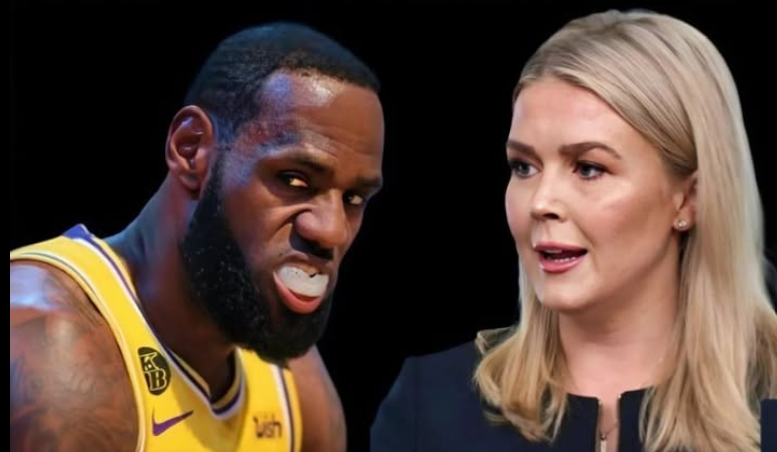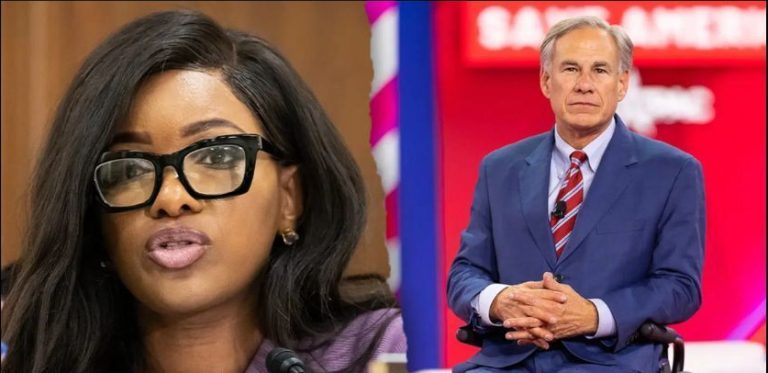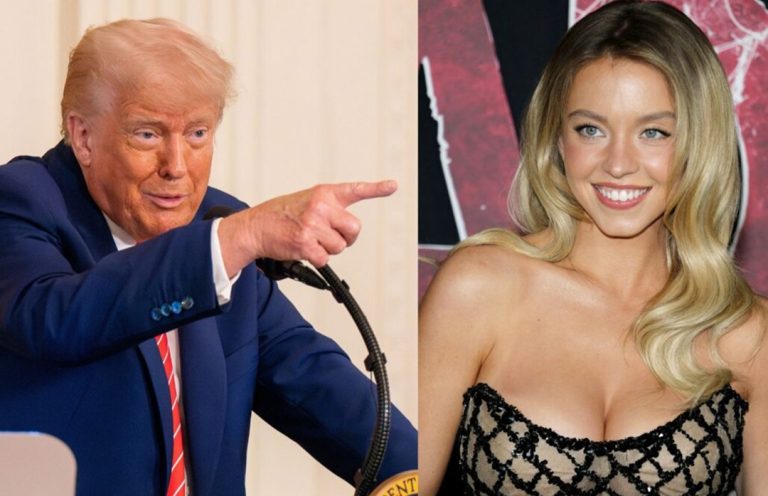When LeBron James referred to Karoline Leavitt as “𝙆𝙆𝙆 𝘽𝘼𝙍𝘽𝙄𝙀,” it was anticipated that she would not emerge unscathed. The insult was incendiary, intentional, and impeccably timed to explode across every social media feed, every late-night comedy routine, and every anonymous comment section filled with keyboard warriors harboring grudges. Two words—𝙆𝙆𝙆 and Barbie—placed side by side to elicit the utmost hostility. One associated with violence and fear. The other linked to plasticity and derision. Combined? It was deeply personal, racial, cultural, and misogynistic—all encapsulated in a single blow.
Her name became a topic of discussion for all the wrong reasons. Clips began to circulate. Commentators engaged in speculation. Opponents displayed smirks. Supporters remained silent. And Karoline? She refrained from making any statements. No tweets. No responses. No press conferences or exclusive interviews. This silence endured just long enough for people to start questioning whether she was delaying or planning a strategy.
They didn’t have to question for long.
When she finally responded, her reply was neither loud nor filled with anger. It didn’t even mention his name. It was merely a single post—seventeen words, stark and emotionless in black text against a white background:
“My family fought to end slavery. Yours came here from Jamaica in the 1930s. Let’s talk facts.”
That was all. No hashtags. No emojis. No dramatic gestures. Just that. Yet, it resonated like the sound of a glass wall breaking. Because somewhere in the gap between those seventeen words and the ensuing silence… something shifted.
For the first time in a long while, someone had effectively countered LeBron—and done so with facts rather than pride.
The public didn’t react with gasps. They hesitated. Journalists halted mid-sentence. Political commentators revised their scripts. On air, some faltered. Others simply moved on. Because no one anticipated a composed response to strike that hard.
The facts were accurate. That was the initial issue. Karoline’s family history was thoroughly documented—Northern abolitionists from generations past. LeBron’s Jamaican roots were common knowledge. She didn’t fabricate a counter-argument. She merely articulated something that had always existed—but had never been voiced.
And somehow, that made it resonate even more.
What she chose not to say held greater significance than what she did say.
She didn’t demand an apology. She didn’t raise her voice. She didn’t remind anyone of the sexist, racist, or inflammatory nature of his comment. The reality is, she didn’t need to. That groundwork had already been laid for her—by him.
Her seventeen words conveyed a chilling message: You have just relinquished control of the narrative—and I will not even elevate my voice to reclaim it.
There exists a perilous quality to such tranquility.
In the background, her team had implored her to amplify her response. One aide had even proposed issuing a comprehensive press statement. “He merely provided us with a headline—we must ensure it has an impact,” they asserted.
Karoline declined. She chose to lean in, rather than pull away.
It was not the first occasion that someone attempted to define her with a label. Likewise, it was not the first instance in which she decided not to allow it to adhere.
Years prior, she had quietly and personally discovered that names possess power only if one consents to the context from which they originate.
During high school, there was a particular moment when a boy referred to her as “Tea Party Barbie.” At that time, she did not even grasp the insult. Upon returning home, she felt perplexed, shared the incident with her father, and inquired if it was accurate. He gazed at her, hesitated, and responded:
That night returned to her now. Not in a surge—but like a soft whisper. Like a page being flipped within her chest.
She felt no need to shout.
She had done that previously. It had proven ineffective. All it accomplished was to make her sound like those who wished her away. This time, she would respond in the manner she wished someone had responded for her, back when she was sixteen, standing in a corridor with a word she did not merit hanging around her neck.
Thus, she composed her statement.
Then she reviewed it five times.
Then she shared it.
Then she remained in silence, motionless, observing nothing, checking nothing.
She had fulfilled her purpose.
The rest would unfold on its own.
And it did.
For the following morning, the media began to unravel. Initially in whispers. Then in edits. Finally in total reversals.
A prominent left-leaning publication altered their headline from “LeBron Calls Out Extremism” to “War of Words Heats Up.” Another issued a complete retraction on their social media caption—quietly, without any fanfare. Commentators who had ridiculed her abruptly ceased to mention her altogether. By the week’s end, LeBron had not made any further comments.
No one ever confirmed the remainder.
Karoline refrained from making any remarks.
However, two days later, a photograph emerged showing her entering a town hall in Vermont, with a folded piece of paper in her left hand. This was not part of her speech. She did not unfold it. Yet, in one close-up image, observers claimed to discern a single handwritten note in the corner: “Let them talk.”
That image became a sensation.
Not due to its content.
But rather because of the absence of clarity.
In a society that craves explanations, that ambiguity held significant influence.
In the meantime, LeBron’s team discreetly reduced the number of interviews. A planned panel discussion on social justice was delayed “due to scheduling conflicts.” An episode of a podcast was withdrawn prior to its release. No justification was provided. It simply vanished.
This was not a scandal. There were no official repercussions. No bans from networks. No corporate announcements.
Just a change.
One degree at a time.
Until, ultimately, people ceased inquiring about what transpired—and began to recall how it felt.
And the feeling… was silence. Not defensive. Not explosive. Just tranquil.









